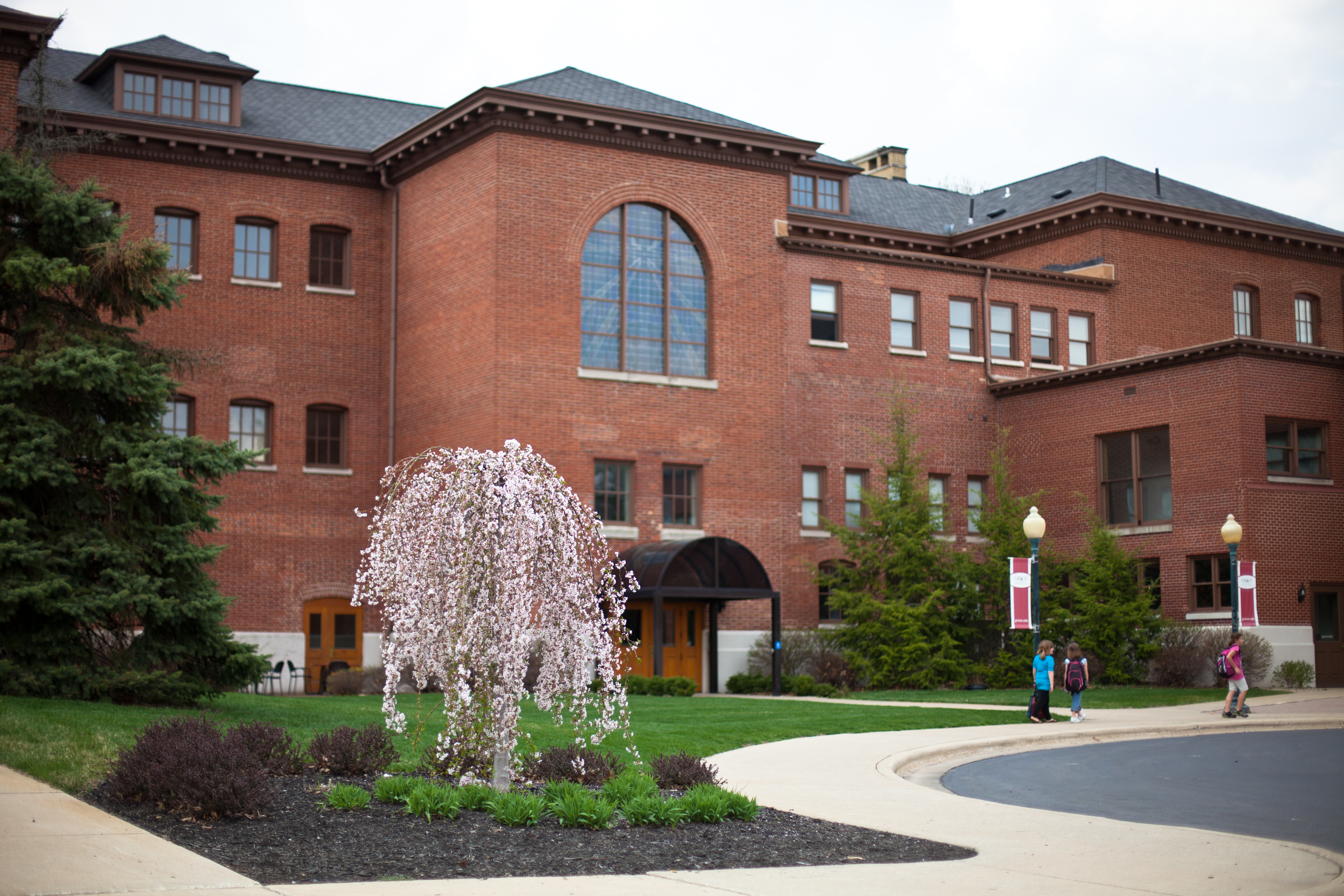June 28, 2021
To Serve and Glorify: Grace College’s Theology of Work
Tagged With Christian Online College Ministry

Less than six months before he was assassinated, Martin Luther King Jr. delivered his “What Is Your Life’s Blueprint?” speech to a group of students at Barratt Junior High School in Philadelphia on October 26, 1967. King told the students that their life required a blueprint. He urged them to always recognize their dignity and worth, and to achieve excellence — wherever they are called.
“And when you discover what you will be in your life, set out to do it as if God Almighty called you at this particular moment in history to do it. Don’t just set out to do a good job. Set out to do such a good job that the living, the dead or the unborn couldn’t do it any better. If it falls your lot to be a street sweeper, sweep streets like Michelangelo painted pictures, sweep streets like Beethoven composed music, sweep streets like Leontyne Price sings before the Metropolitan Opera. Sweep streets like Shakespeare wrote poetry. Sweep streets so well that all the hosts of heaven and earth will have to pause and say: Here lived a great street sweeper who swept his job well.” -Martin Luther King, Jr.
King’s words illuminate a valuable truth that any theology of work must include: All work has significance. Not only is work a part of God’s plan and thus our purpose, but our work can glorify Him and serve others.
As an institution of higher education, we are an engine that is constantly producing and sending workers into the workforce — both in full-time vocational ministry and otherwise. So having a solid theology of work is important to us.
Let’s take a look at what it says about work in the Bible, shall we?
What Does the Bible Say About Work?
“Then the LORD God took the man and put him in the garden of Eden to tend and keep it.” -Genesis 2:15 NKJV
Early in Genesis, we see God as a creator working in the material world. He creates heaven and earth, land and water, stars and heavenly bodies, animals and human beings. He rests and is satisfied in what He has created. All of creation displays God’s design, power and goodness, but only human beings are made in His image. As a result, and as ones who have dominion over earth, we are to follow His example as workers.
Part of man’s purpose is to work, as evidenced when God places Adam in the Garden of Eden. “He put him there, not like Leviathan into the waters, to play therein, but to dress the garden and to keep it,” Matthew Henry writes in Commentary on the Whole Bible. “Paradise itself was not a place of exemption from work.” According to Robert Jamieson in Commentary Critical and Explanatory on the Whole Bible, Adam’s assignment was “a pleasant employment” and “as the title of this garden, the garden of the Lord (Ge 13:10; Eze 28:13), indicates, it was in fact a temple in which he worshipped God, and was daily employed in offering the sacrifices of thanksgiving and praise.”
Adam tending to the Garden of Eden took place before the Fall. Work is a part of God’s original plan, included in the “very good” (Genesis 1:31) part of creation. “There is a true pleasure in the business which God calls us to, and employs us in,” Henry writes. “Adam’s work was so far from being an allay that it was an addition to the pleasures of paradise; he could not have been happy if he had been idle.”
Theology of Work Pt. I: The Fall
Then to Adam He said, “Because you have heeded the voice of your wife, and have eaten from the tree of which I commanded you, saying, ‘You shall not eat of it’:
“Cursed is the ground for your sake; In toil you shall eat of it all the days of your life. Both thorns and thistles it shall bring forth for you, and you shall eat the herb of the field. In the sweat of your face you shall eat bread till you return to the ground, for out of it you were taken; for dust you are, and to dust you shall return.” -Genesis 3:17-19
Due to their sin, God tells Eve that she will face pain in childbirth and tells Adam that he will toil to earn a living from the soil. God will still provide for their needs, but work will become more difficult. “What before his fall he did with ease and pleasure, was not to be accomplished after it without painful and persevering exertion,” Jamieson writes.
Theology of Work Pt. II: Redemption Through Christ
“For the creation was subjected to futility, not willingly, but because of Him who subjected it in hope; because the creation itself also will be delivered from the bondage of corruption into the glorious liberty of the children of God.” -Romans 8:20-21
Throughout Romans, Paul speaks to our need for redemption. We “all have sinned and fall short of the glory of God,” but we are “justified freely by His grace through the redemption that is in Christ Jesus” (Romans 3:23-24). Christ’s sacrifice frees us from sin and offers us eternal life (Romans 6:24).
All of this changes not only our destiny, but how we live in this world. Paul writes that “just as Christ was raised from the dead by the glory of the Father, even so we also should walk in the newness of life” (Romans 6:4). Everything changes — from our time to our relationships and, of course, our work. All of it is renewed and able to glorify God.
Theology of Work Pt. III: Glorifying God
“Teacher, which is the great commandment in the law?”
Jesus said to him, “‘You shall love the Lord your God with all your heart, with all your soul, and with all your mind.’ This is the first and great commandment. And the second is like it: ‘You shall love your neighbor as yourself.’ On these two commandments hang all the Law and the Prophets.” -Matthew 22:36-40
Jesus responds to the Pharisee’s question by providing two commandments, or the Great Commandment, summarizing all the laws and commands in Scripture. We should love God with all of our heart, soul and mind, and love our neighbor as ourselves. “Love,” in the words of Paul, “is the fulfillment of the law” (Romans 13:10).
Out of our love for God, we can glorify Him in all things. One of these opportunities is with work. It’s not just because we spend a significant amount of time working, but because work is God’s design. Part of what it means to love God is to obey Him (Psalm 103:17-18, John 14:15).
In Genesis, God instituted work. Here, God is the primary worker, He called His work “very good,” and He rested from His work. We too can follow His lead by working hard, striving for excellence and resting. Our reward for work can be the honor and satisfaction that comes from a job well-done, just as we witness in Genesis.
Seeing Work as an Opportunity for Ministry
“We were not disorderly among you; nor did we eat anyone’s bread free of charge, but worked with labor and toil night and day, that we might not be a burden to any of you, not because we do not have authority, but to make ourselves an example of how you should follow us.” – 2 Thessalonians 3:7-9
Another way to glorify God through work is to recognize that work provides us an opportunity to impact others. Like Paul describes in 2 Thessalonians, we can become an example to someone through our work ethic, which can alone demand attention.
Work can also be a direct ministry opportunity. We need to remember that we are to love our neighbor as ourselves; as Augustine writes in Against the Manichaeans, “Our love of our neighbor is a sort of cradle of our love to God.” Our vocation may give us the opportunity to build a meaningful relationship with someone who may or may not know Christ. When we have a right theology of work, we see it as an opportunity to reach out to someone in need.
The Call to Vocational Ministry
So, what does the Bible say about work? Through a close look at the Scriptures, we recognize that regardless of what our job is, we are to view our work as ministry. But we also see that some are called to full-time vocational ministry. These positions have unique demands, and this call requires people to use discernment and lean into the power of prayer. If you are already involved in vocational ministry or if you plan to be, it is also beneficial to consider education designed to train and equip you for such a call.
Grace College offers an online M.A. in Ministry Studies. This accelerated, fully online program allows students to complete their degree while maintaining their work and personal schedules. The degree offers concentrations in Christian ministry, women’s leadership studies, counseling, and technology.


